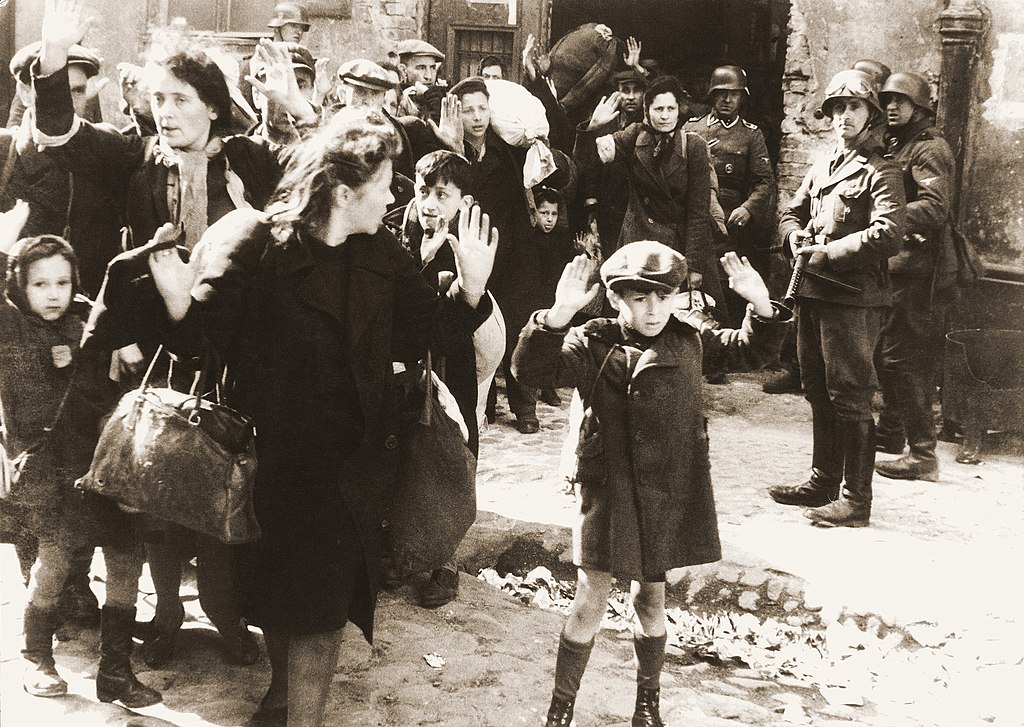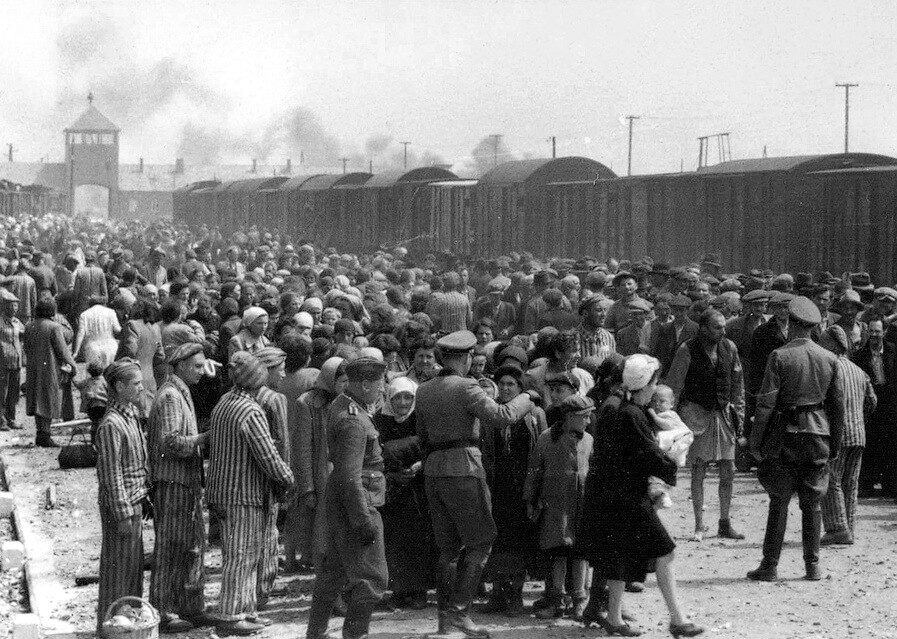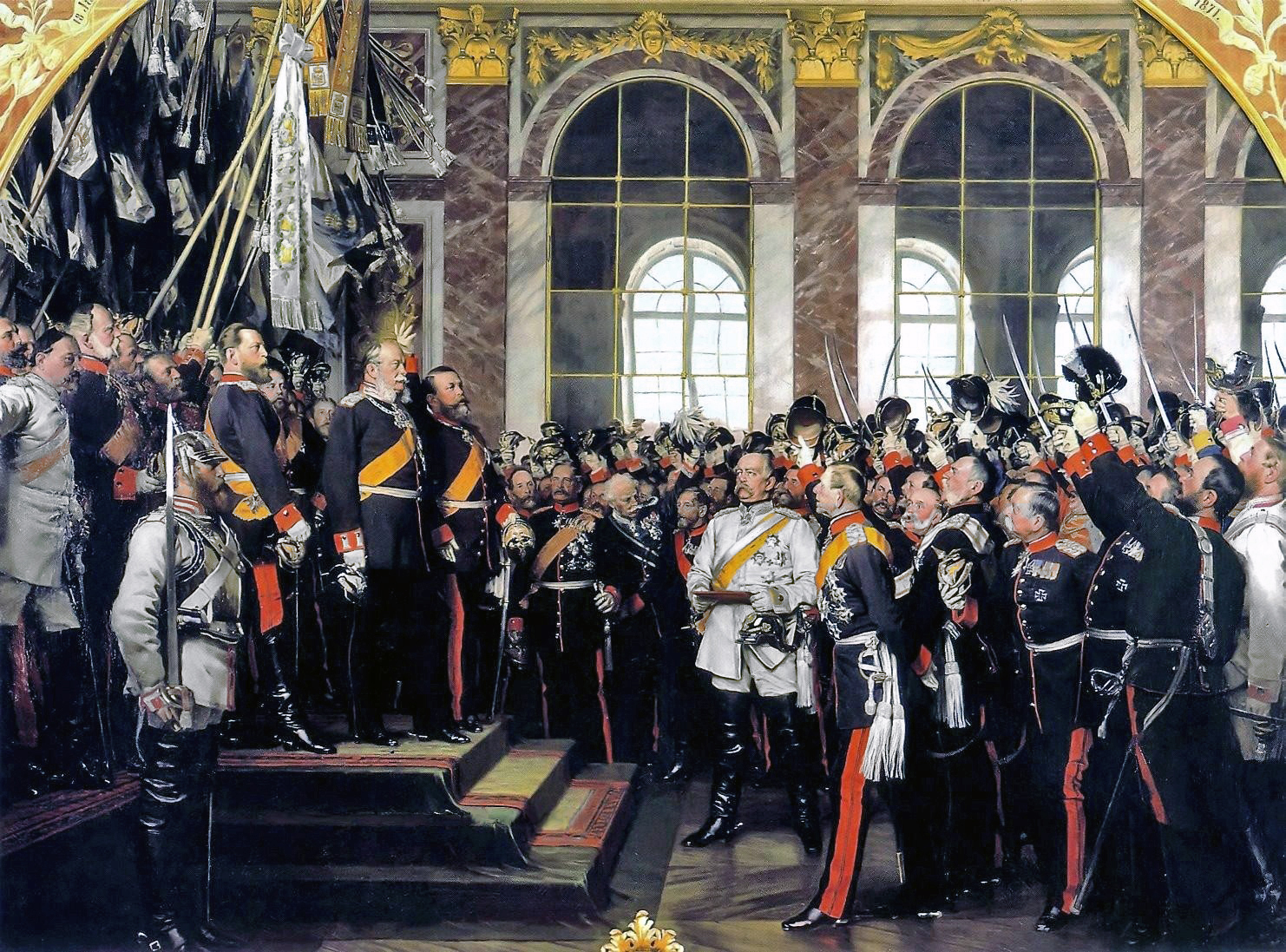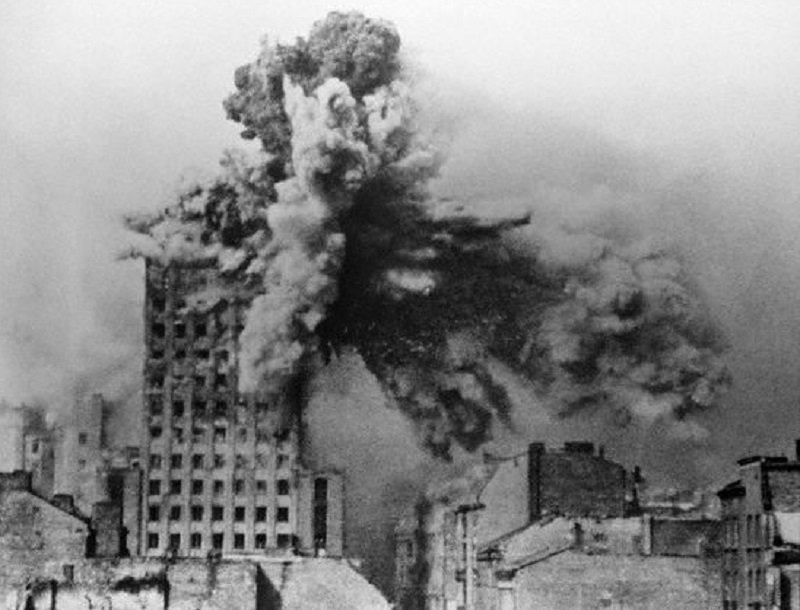Pseudo-scientific “proving” of lies about Polish responsibility for the Holocaust

The common denominator of all these errors is the preparation of evidence under the assumed thesis of the publication, that Poles were a greater threat to Jews than Germans, referred to them with hatred and willingly cooperated in the Holocaust – which makes one conclude that in fact we are not dealing with errors, but with deliberate falsification of history. “Researchers” not only rely on completely uncritically quoted memoirs and indirect accounts, but also make snippets of them, selecting only what fits the assumed thesis and omitting everything that does not fit.
Rafał A. Ziemkiewicz
One must begin by questioning the “scientific method” of Barbara Engelking’s research. On the surface, it seems obvious: Engelking is, after all, a professor, a correspondent member of the Polish Academy of Sciences, holds an honorary doctorate from Tel Aviv University, and, well, she heads a scientific institution affiliated with the Institute of Philosophy and Sociology of the Polish Academy of Sciences (IPS PAS) – the Holocaust Research Center – which she co-founded with Jan Grabowski, among others.
It is difficult, however, not to be surprised by such an “empowerment” of the research unit established in 2003: Why was an institution that was supposed to deal with such important historical inquiries and revise commonly accepted findings, in addition, on an issue so socially important and sensitive, established not at the Institute of History, but at the Institute of Philosophy and Sociology? Why was it headed not by a historian, but by a graduate of the Psychology Department who has a doctorate in the sociology of culture? It is true that there are also a few professional historians on the staff of the Center, but they seem to have been pushed into the background there by the head of the Center, who is eagerly perorating in the media and throwing strong propaganda theses out there, as well as by Prof. Jacek Leociak, a Polish scholar who is close to her in his views and often acts in tandem with her.
Let’s try to imagine a Center for the Study of Sexual Misconduct established not at a medical or psychological institute, but, say, a cultural studies institute, under the direction of a theologian habilitated in art history. On the surface, it is as rational as the arguments that determined IPS PAS’ decision 20 years ago seemed to be: after all, sexual difference is a phenomenon that deserves to be studied not only in its medical aspects, but also in its cultural, social, or religious contexts. However, let’s try to imagine that such a center quickly departs from these assumptions and deals with the very things that should be dealt with by professionals – sexologists and psychologists. That, citing its scientific research, not to mention that it was conducted on the taxpayer’s dime, but substantiated by the authority of the state, the center proclaims to everyone that homosexuality and transsexualism are just a kind of sophisticated debauchery, a perversion resulting from boredom, and those affected should be forcibly treated. As proof, they cite scientifically compiled accounts and opinions of people who have tried to form traditional relationships with homosexuals or bisexuals.

What unimaginable outrage would have immediately risen! How many protests, letters, interventions by international commissioners and tribunals – right? And yet Barbara Engelking’s position as an expert on Holocaust history was built in exactly this way. Like the hypothetical cultural theologian from the example above, she very quickly left the research areas she is formally qualified to deal with, and instead of the social contexts of the Holocaust of the Jews, she busied herself with a persistent revision of historical facts. A change in scientific specialization is not, of course, in itself a reprehensible thing, but on condition that one respects the fundamental principles governing the field one enters. Meanwhile, Prof. Engelking, taking advantage of her institutional grounding in philosophy and sociology, enters in her research a strictly historical matter, programmatically rejecting the ironclad principles of historiography in the pursuit of objective truth through “source criticism.”
From mouth to mouth
An old-school lawyer told me about a method used in his day (I don’t know if it still is) to develop a critical attitude toward witness accounts in students of the profession. During the course of the class, an aggressive assailant would unexpectedly burst into the room, start insulting those present, then jostle them, in short, he would stage a wild brawl. After a while, the instructor would explain that the students were being staged, and start questioning them about what they had seen and heard. In this way, they found out that even on the events of literally a moment ago, it is difficult to establish a coherent and consistent version – everyone saw and heard something different from the others. This is simply how the human mind and human unreliable memory work. Therefore, the testimonies of even direct participants in the events under investigation, especially those written down years later, taking into account later reflections and acquired post factum knowledge, absolutely must be subject to verification, be confronted with other testimonies, and above all with documents and material evidence.
Meanwhile, Prof. Engelking has just boasted that she has brought “a focus on the accounts of witnesses and participants” to Holocaust research (not excluding “unconventional accounts,” i.e., family and community legends and even dreams repeated from mouth to mouth over the years). She is not a forerunner in this: the idea that, due to the uniqueness of the crime of the Holocaust, traditional principles of source criticism should be abandoned when describing it, was publicly announced years ago by Jan Tomasz Gross – also a sociologist by training. Characteristically, this demand was received with enthusiasm, and the publicist, who rejected the historical workshop, was given the chair of professor of history at Princeton.

True to the principle of the “new school” of Holocaust research that he created, when writing a book about the Jedwabne crime Neighbors, he ignored the findings of historians to date, as well as existing documents (including the records of the trial of the perpetrators of this and other crimes, similarly conducted in neighboring towns at a similar time, which took place in Germany in the 1960s – a trial in which the commander of the SS extermination squad, Herman Schaper, was exonerated by a German court, taking his explanations at face value, but the mechanism of the crime and the enlistment of the local population in it was described in great detail), and he based all his passionate accusations of the Poles on practically one account, coming from a man who was outside Jedwabne at the time of the crime, and after the war was a UB functionary (UB was the communist secret police), and in a testimony given in his old age in Israel he evidently tried, by slandering the Poles, to relativize his guilt against them. And this account, too, was treated selectively by Gross, passing over the obvious nonsense that undermines its credibility.
Embarassing errors
The achievements of the Holocaust Research Center, despite its institutional background, look no better. An example is its flagship project “Strategies of Jewish Survival during the Occupation in the General Government 1942-1945. A Study of Selected Districts.” Its fruit became a two-volume publication “Night without End: The Fate of Jews in German-Occupied Poland”, jointly edited by Engelking and the aforementioned Grabowski. The publication received a crushing appraisal from historians – practically no one tried to defend it substantively, as it is difficult to consider as such a defense the propaganda outcries that the work “provoked the fury of the right wing” and is attacked from “nationalist” positions.
In the extensive reviews – including a brochure by Tomasz Domanski, who is affiliated with the Institute of National Remembrance (IPN), or reviews for professional journals by Tomasz Roguski and Roman Gieronia – we find a whole catalog of embarassing workshop errors, misrepresentations, manipulations, and even – Piotr Gontarczyk presented a whole list of them – falsified quotations (Grabowski in particular excels at this), which, as a result of twisting or omitting important passages, mean something completely different from the accounts cited by the Center’s researchers. The common denominator of all these errors is the preparation of evidence under the assumed thesis of the publication, that Poles were a greater threat to Jews than Germans, referred to them with hatred and willingly cooperated in the Holocaust – which makes one conclude that in fact we are not dealing with errors, but with deliberate falsification of history. “Researchers” not only rely on completely uncritically quoted memoirs and indirect accounts, but also make snippets of them, selecting only what fits the assumed thesis and omitting everything that does not fit.
Frankly speaking, the above publication, with its pseudo-scientific historical revisionism bolstered by manipulations, is far more likely to become a cause for the authorities to examine the advisability of funding the Engelking-led center than her shocking statements in the media. And Engelking doesn’t skimp on those – let’s just recall the most famous one, her blatantly racist remarks about how death for Jews is metaphysics and an encounter with the Supreme, while for Poles it’s just physiology. It is hard to imagine that the author of similar generalizations, reducing an unlovable nation to the role of human cattle devoid of higher feelings, would not suffer severe consequences if she had offended not Poles in this way, but any of the “protected minorities.”
Self-creation of a martyr
Engelking has mastered the method of portraying herself as a martyr to perfection, a method widely used by the left – the method of “strike as painfully as possible at sanctities, at feelings, at the victim’s sense of dignity, provoke a reaction, and then shout to the whole world that you are a victim of hate.” Like Grabowski and Gross, like the mayor of an American town in New Jersey who, with alleged anti-Semitic attacks on himself by Poles, tried to shield an attempt to remove the Katyn monument for a profitable real estate developer, Engelking is propagandistically created, and creates herself, as a victim of “Polish anti-Semitism.” Also, “Night without End” crushed by historians in Poland, has served as a rung to her international career.

The lawsuit brought by Filomena Leszczynska, whose late uncle was falsely portrayed in the publication as a Nazi collaborator, was made the world over by the left-liberal media as a symbol of “the persecution of independent scientists by the Catholic-nationalist regime,” while of course carefully omitting the fact, that the lawsuit was not brought by the “regime’s” prosecutor’s office, but by a private individual in civil proceedings, and the case ended with the court’s finding that Engelking and Grabowski had indeed published a defamatory lie, but as scientists they have an analogous right to “malpractice” to doctors. What adds spice to the case is that with the usual hypocrisy and indignation of the left-liberal elite, the trial was carried by the same people who happily cheered on the trials brought against historians “in defense of Walesa’s honor.”
It was this trial that directly inspired Tel Aviv University to award Engelking the aforementioned honorary doctorate “for her courageous determination to counter the distortion of the Holocaust and reveal the complexity of Polish-Jewish relations during World War II, regardless of the personal cost.” This qualifies as a mockery, since the only “personal cost” Engelking incurs because of her passion for accusing Poles is, of course, the long list of honors, foreign invitations and awards, the enumeration of which takes up a large chunk of the Wikipedia entry devoted to her.
Also, Minister Czarnek’s recent statement served to portray Engelking as a victim of persecution – in propaganda messages presented as “suppression of scientific freedom.” With utter contempt for the truth, her activities are presented as “uncovering the truth,” supposedly “scientifically proven by her,” and protests against the anti-Polish opinions she has expressed – as a manifestation of Poles’ inability to come to terms with their “shameful past.”
The mentioned statement by Minister Czarnek, let’s recall, concerned the interview Engelking gave on TVN24 to Monika Olejnik (who had popped from her television studio to the Polin Museum just for the occasion) on the anniversary of the ghetto uprising. The Minister’s reaction to the instrumental use of this anniversary to deliver another portion of anti-Polish slander was one sentence that, on the whole, did not carry anything concrete – that when listening to such statements, he wonders “whether he should provide more funds for this type of research.” If viewed purely in terms of national politics, Czarnek’s ploy was very skillful political trolling: provoked by this vague statement, the “elites,” by pouring out appeals, open letters, sermons and various demonstrations for days in defense of Engelking and the “endangered freedom of scientific research,” are maintaining the persistence in the public consciousness of accusations that would otherwise have long gone unmentioned. And for the left-liberal opposition to be associated with demanding that Poles apologize for the Holocaust, and for this to be, along with attacks on John Paul II and demands to let in Putin’s “refugees,” one of the threads of public debate, is in the best electoral interests of Law and Justice.
An export product
Let’s note that Barbara Engelking and the discourse of the “new school of Holocaust studies,” according to which “Poles were worse than Nazis,” is an export product. What in domestic politics sustains the voters’ revolt against the left-liberal “elites,” externally, is part of an elaborate discourse of blaming Poland for the Holocaust and of allegedly “denying” Polish participation in it.
Like the aforementioned Gross or Grabowski, Engelking has become a celebrity shining at American and Israeli universities. In a recent interview with the daily Haaretz, she explains her situation, with her usual disdain for Poles, in terms of the fact that “they” (it’s not clear from the context whether she’s thinking only of the authorities or of our society in general) were forced, because of the anniversary of the ghetto uprising, to walk around with yellow daffodils and pretend that they like Jews for a whole day, so “they” had to unwind this humiliation immediately afterwards with public attacks on an unbiased, objective “scientist” who taunts them by telling the truth about their shameful past.

Where there is demand – there will always be those who supply. And unlike the “cancel culture” censors used in the introduction as an illustrative example of the humiliation of “sexual minorities” whose well-being is now under strict protection, the discourse represented by Barbara Engelking and her Center is in great demand, as we have written about many times. On the one hand, we have the money of Jewish organizations, still sharpening their teeth for “inheritance-free property” from Polish Jews murdered by the Germans. And since there are no legal tools for claiming tribal inheritance, the only justification for their claims can be an appeal to the widely shared belief that a criminal should not inherit from his victim – so Poles must be made the perpetrators of the Holocaust.
The second “orderer” of the falsification of the history of the Holocaust is the great sponsor of the “fight against anti-Semitism” Vladimir Putin, acting through his sidekick, the oligarch Vyacheslav Moshevich Kantor, who for years has been funding all kinds of organizations and congresses, conflating Poles with Jews and thus with the American ally, and promoting the narrative of “Nazi” rule in Central Europe. Added to this are the needs of Israeli politics, which the camp of the embattled Prime Minister Netanyahu is largely building on inciting hatred towards Poland and Poles.
But there may be other motivations as well. In an online post – let’s note that it is heavily embarrassing for him – Prof. Michal Bilewicz of Warsaw University points out the “class dimension” of the conflict between Prof. Engelking and Minister Czarnek. Well, Engelking continues the traditions of her family, and this is (like the Hartman family) a “professorial” family, full of famous mathematicians – while Czarnek is from the countryside and attacks Engelking simply out of envy, because he has an inferiority complex towards her. And one is tempted to add that the Engelking family developed a hunger for metaphysics and the absolute, while Czarnek’s life is just pure physiology. By the way, this telling of “they envy us because they know we are better” is the leitmotiv of much left-liberal “political analysis” and a rather obvious result of the “delusion of superiority” on which the identity of the elite is built.
However, the question of Prof. Engelking’s personal motivations is of secondary importance. What is important is the phenomenon of which, along with those mentioned above, she has become a symbol: the incredible career that can be made on pseudo-scientific “proving” of lies about Polish responsibility for the Holocaust.
This article was published in May 2023 in “Do Rzeczy” weekly



